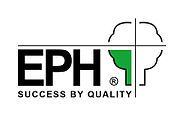Institute for Wood Technology Dresden
| Institute for Wood Technology Dresden non-profit GmbH | |
|---|---|
 Exterior view of the IHD at Zellescher Weg 24 |
|
| Category: | research Institute |
| Carrier: | Supporting association Institute for Wood Technology Dresden e. V. |
| Consist: | since 1952 |
| Legal form of the carrier: | registered association |
| Facility location: | Dresden , Germany |
| Type of research: | Applied research |
| Subjects: | Engineering, natural and material sciences |
| Areas of expertise: | Biology / wood protection, materials, surfaces, chemistry / environment, physics / components, furniture / interior fittings, damage analysis |
| Management: | Steffen Tobisch, Götz Haake |
| Employee: | IHD 110, BA students 16 and EPH 17 (as of January 2020) |
| Homepage: | www.ihd-dresden.de |
The Institute for Wood Technology Dresden (IHD) is a private, non-profit research institute in the field of scientific research in the field of wood technology. Since May 2014 it has been an affiliate of the Technical University of Dresden . The sponsoring association Institute for Wood Technology Dresden e. V. (TIHD) is a member association of the Working Group on Industrial Research Associations. V. (AiF).
The institute maintains contacts with scientific institutions and companies in more than 60 countries in Europe, Asia, America and Australia. For services in the field of material, component and furniture testing, the IHD has a subsidiary, the Wood Technology Development and Testing Laboratory Dresden (EPH) with a branch in Detmold .
history
The institute was founded in 1952 as the Institute for Wood Technology and Fiber Building Materials (IHF) and in 1973 it was subordinated to the Association of Publicly Owned Enterprises (VVB) Furniture Industry in Dresden . In 1980 it was merged with other institutions to form the Scientific and Technical Center of the Woodworking Industry (WTZ Holz) and assigned to the wood-based materials, fittings, and machinery combine . In 1990 VEB WTZ Holz split off from the combine; the attempt to transfer the institute to other institutions such as B. to affiliate the Landesgewerbeanstalt Bayern or to continue to run it as an affiliated institute of the TU Dresden, however, failed. As a result, in August 1992 the institute for wood technology Dresden e. V. (TIHD) was founded as a new partner, the institute was converted under its current name into a non-profit GmbH and the subsidiary EPH was founded in September of the same year .
research
The IHD's research activities cover the following areas:
Biology / wood protection
In addition to the classic topics of wood science, the objectives of the research activities include the development of biotechnological processes in wood protection , the development of products to improve the antimicrobial effectiveness or biological resistance of wood and wood-based materials, and the further development of test methods. The specialty areas included the thermal modification of wood and the molecular biological diagnostics of wood-destroying fungi.
Materials
The main areas of activity in the field of materials include the laboratory development, production, optimization and functionalization of organically and inorganically bound wood-based materials such as fiberboard, chipboard, OSB , plywood, solid wood panels and composite panels. Further research projects deal with powder-paintable wood particle materials, the use of high-frequency technology in wood-based material production, wood-based materials made from thermally modified wood , the development of new binders and insulating materials made from organic raw materials.
surfaces
The focus in the area of surfaces is digital printing , 3D coatings, application, hardening and drying processes for environmentally friendly coatings (powder, water and UV lacquers, waxes / oils), fire behavior and electrostatic properties of surfaces and flooring systems.
Chemistry / environment
In the field of chemistry and the environment, investigations into the causes and reduction of odors and pollutant emissions from wood products take place. Test and measurement methods for the determination of volatile organic components ( VOC ), formaldehyde and ammonia are being developed. Further areas are the use of modified natural oils for coating as well as the analysis and removal of problematic wood preservatives from buildings and artifacts.
Physics / components
In the physics and components research area, a. physical material and component tests as well as the development of lightweight materials and sound insulation systems (wall and floor constructions). Various methods are available for individual component and system tests for windows, doors and facades as well as vehicle components and formwork systems. Theoretical preliminary considerations and numerical calculations are used (hot box method).
Furniture / interior work
Research activities focus on the design, construction and evaluation of furniture in view of the challenges arising from demographic developments, changed usage behavior and new technological requirements. In addition, new materials and material composites for furniture and interior fittings are being developed and examined for their aging behavior using modern calculation and prediction methods (e.g. FEM ).
Damage analysis
Building on experience from research and services, research into the causes of damage to surfaces and materials due to the effects of weather, biological attacks and structural defects is carried out scientifically. Finding the cause as well as avoiding unwanted emissions from materials and products is an important field. The IHD scientists are generally recognized by courts as publicly appointed and sworn experts.
Subsidiary EPH
The institute is a subsidiary of the IHD which, as an accredited testing, monitoring and certification body, offers services for a wide range of industries and products. In addition to services in the area of "building and living", in which wood and wood-based materials play a role, the EPH is a partner for manufacturers and retailers of supplier materials.
As a recognized product certification body, the EPH determines the performance characteristics of construction products (e.g. CE ) and furniture (e.g. GS mark ). The test laboratory has been recognized by CARB as a Third Party Certifier (TPC No. W-12-010) since August 2008 .
Information and knowledge transfer
The institute has its own library and a self-created wood technology database with more than 90,000 refereed references. As early as 1962, the institute created a wood technology thesaurus and in 1996 published a wood technology systematic.
Together with the Institute for Wood and Paper Technology at TU Dresden, the IHD publishes the traditional specialist journal Holz technologie ( ISSN 0018-3881 ), which has been reporting on research and development results in wood technology across Europe since 1960. After the temporary suspension in 1990, the magazine has been published six times a year since May 2005.
As the organizer of specialist conferences such as the European Thermowood Workshop, the Wood Material and Floor Colloquium and the Wood Anatomy Colloquium, the IHD promotes the exchange of knowledge and experience in the field of wood technology. Through international research cooperation and active participation in associations and networks, current findings are regularly incorporated into national and international standardization ( DIN , EN , ISO ).
Memberships in specialist committees
The institute maintains relationships with several specialist committees, including a.
- German Research Association for Surface Treatment e. V. (DFO)
- Fachagentur Nachwachsende Rohstoffe e. V. (FNR)
- Research Association Tools and Materials e. V. (FGW)
- International Association for Technical Issues related to Wood e. V. (iVTH)
- Competence Center LignoSax, Saxon Wood Protection Association e. V.
- Saxon Industry Research Association (SIG)
- Association of Innovative companies e. V. (VIU)
- German Industrial Research Association Konrad Zuse e. V.
literature
- Margot Scheithauer: 50 years of the Institute for Wood Technology Dresden, 10 years of the Institute for Wood Technology . Weinbrenner, Leinfelden-Echterdingen February 2002.
Web links
- Homepage of the Institute for Wood Technology Dresden
- Homepage of the specialist journal Holztechnologie
- Homepage of the sponsoring association Institute for Wood Technology Dresden e. V.
Individual evidence
- ↑ IHD is an affiliate of the TU Dresden. Retrieved September 10, 2014.
- ↑ NIMM-EPH Detmold. Retrieved October 25, 2019.
- ↑ History of the IHD. Retrieved May 30, 2016.
- ^ Margot Scheithauer: 50 Years of the Institute for Wood Technology Dresden. 1st edition, Leinfelden-Echterdingen, p. 22 ff. 2002.
- ^ Margot Scheithauer: 50 Years of the Institute for Wood Technology Dresden. 1st edition, Leinfelden-Echterdingen, p. 27. 2002.
- ↑ Research areas of the IHD. Retrieved October 25, 2019.
- ↑ EPH is a Third Party Certifier of Composite Wood Products. Retrieved October 25, 2019.
- ↑ The wood technology database. Retrieved September 10, 2014.
- ^ Editor: TU Dresden and IHD. Retrieved October 25, 2019.
Coordinates: 51 ° 1 ′ 42.1 ″ N , 13 ° 44 ′ 30.3 ″ E

